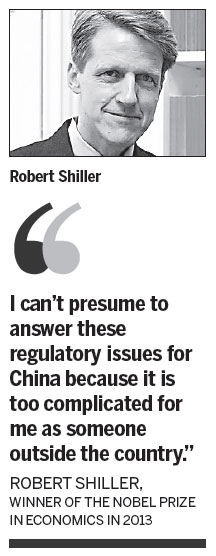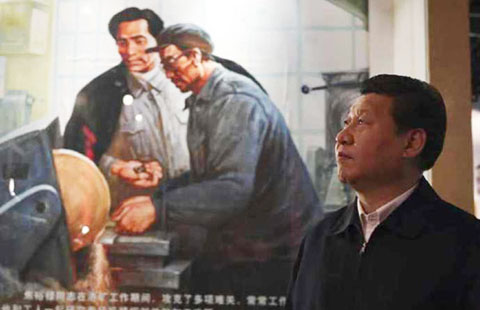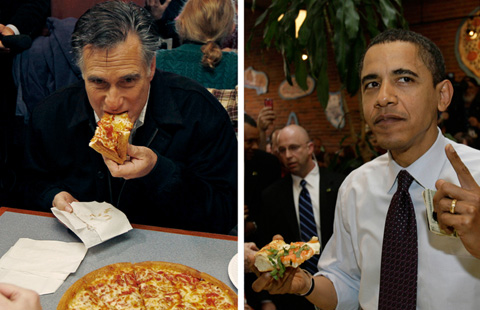Few textbook answers from Nobel prize winner
Updated: 2014-03-20 07:28
By Zheng Yangpeng (China Daily USA)
|
||||||||
Robert Shiller might know he is hot in China, but he probably doesn't know just how hot.
At the second Nobel Economists Summit of China, which he attended over the weekend, he seemed overwhelmed by the number of questions thrown at him - along with the occasional request for an autograph - from journalists who usually try to be seen as professional.
Given this was his first China trip after receiving the Nobel Prize in Economics last year, and factoring in Chinese people's obsession with the Nobel, the enthusiasm he received was understandable.
But he apparently still was not prepared for the type of questions he encountered.
Despite having such areas of expertise as insurance, the charitable gift tax deduction and benefit corporations, he is better known in the Middle Kingdom for his undisguised doubts about the country's skyrocketing home prices.
So, during the question-and-answer period after his speech, he was asked: "Do you think China's property market will collapse?"
As on previous occasions, Shiller again cast doubt on the high-rising prices and said there is a possibility for the bubble to burst. But unlike media reports that portray him as a resolute Dr. Doom, he did not hide his uncertainty about the issue.
And as a serious economist, he did not conceal his unwillingness and inability to predict the future, though he is known for publishing the famous book Irrational Exuberance just before the Nasdaq tumbled from its peak in 2000.
"I find it difficult to forecast these things (whether home price will fall). I don't know how to forecast when such things will happen," Shiller confessed.
Other questions followed, ranging from how he saw China's stock market, to China's Internet finance, to China's slowdown, to the possible effect that the US Federal Reserve's tapering policy might have on China.
Likewise, the Yale University professor was candid about not putting too much thought into those issues. When asked how he saw China's central bank's move to halt use of QR codes and virtual credit cards, he replied: "I can't presume to answer these regulatory issues for China because it is too complicated for me as someone outside the country."

But these questions did not really seek an answer; they basically just revealed what we Chinese fear: Even if Professor Shiller had given a definitive answer to one, similar questions would be posed to other economists.
For Shiller, a percentage point lowering of China's GDP growth is "normal": economies have risen and fallen historically; but for many Chinese, any slowdown is a keenly felt pain.
All politics is local. So is news. Shiller's unwillingness to give definite answers might have disappointed the Chinese media, but if you listened carefully to what he said, it underscored what you can and cannot expect from economists: They do not hold a crystal ball in their hands. What they tend to be good at is helping people understand the world in its present form. Below is a response from Shiller that really saw his brilliance shine through.
When asked by a Chinese economist if finance really makes a better society, he said: "I don't think I would blame finance for all these things (economic crises, rising inequality, etc). Finance, in essence, is technology. People who master the technology might use it to make themselves wealthy. Finance is about risk management, and risk management is essential to reduce any inequality.
"I don't mean to be so optimistic about finance," Shiller continued. "It is the people, the culture which make the society, and progress can be uneven. "The problem is that humans are very irregular. They can be kind and generous. They can be selfish and grasping. We have to have institutions that respect people's real feelings, that try to produce a sense of community.
"But we can't completely eliminate the selfish side of human beings either, because that is what drives and motivates them. So you have to get a right balance.
"What I have been saying is our financial system is a product of experimentation. It is a bit like a sporting event. In football, for example, you make rules that encourage ruthlessness. We want them to play ruthlessly. But there are certain things that you don't want to do that might hurt someone seriously. The players thus act ruthlessly toward each other on the field but right after, they can have beer together.
"That's the vision of a good society. It can't be perfect, because people will never be totally unselfish and loving. We have to try to develop a system that balances different human aspects. "
Contact the writer at zhengyangpeng@chinadaily.com.cn
(China Daily USA 03/20/2014 page15)

 Fashions of the first ladies
Fashions of the first ladies
 Pro-Russian forces take over Ukraine's naval HQ
Pro-Russian forces take over Ukraine's naval HQ
 New US envoy hits ground running
New US envoy hits ground running
 HK cellist to perform at Carnegie Hall
HK cellist to perform at Carnegie Hall
 Skyscrapers in E China resemble LV check pattern
Skyscrapers in E China resemble LV check pattern
 President Xi honors memory of devoted county Party chief
President Xi honors memory of devoted county Party chief
 More than just food
More than just food
 Miss world visits cancer children in Colombia
Miss world visits cancer children in Colombia
Most Viewed
Editor's Picks

|

|

|

|

|

|
Today's Top News
Australia finds objects possibly from MH370
Tour adds 'new dimension' to ties
China largest holder of US debt
California shelves proposal
Chinese treasures on the block
China must expand inbound tourism
Hunger strike off, anger remains
Tourists offered compensation for bad air days
US Weekly

|

|






